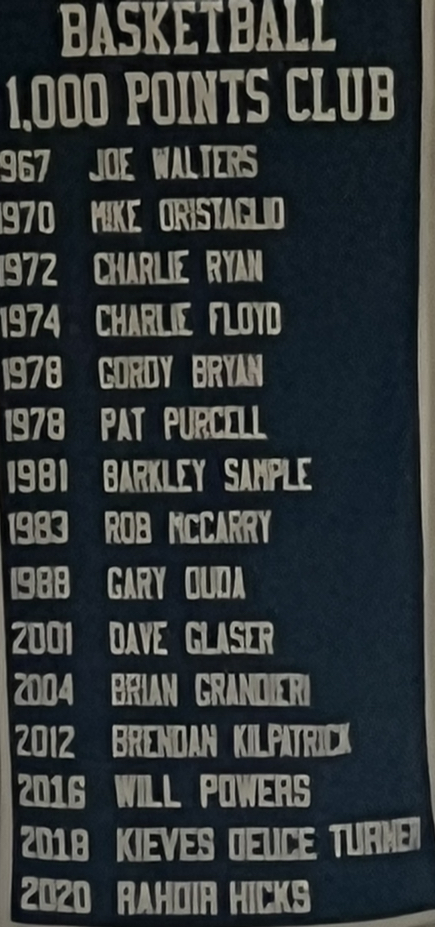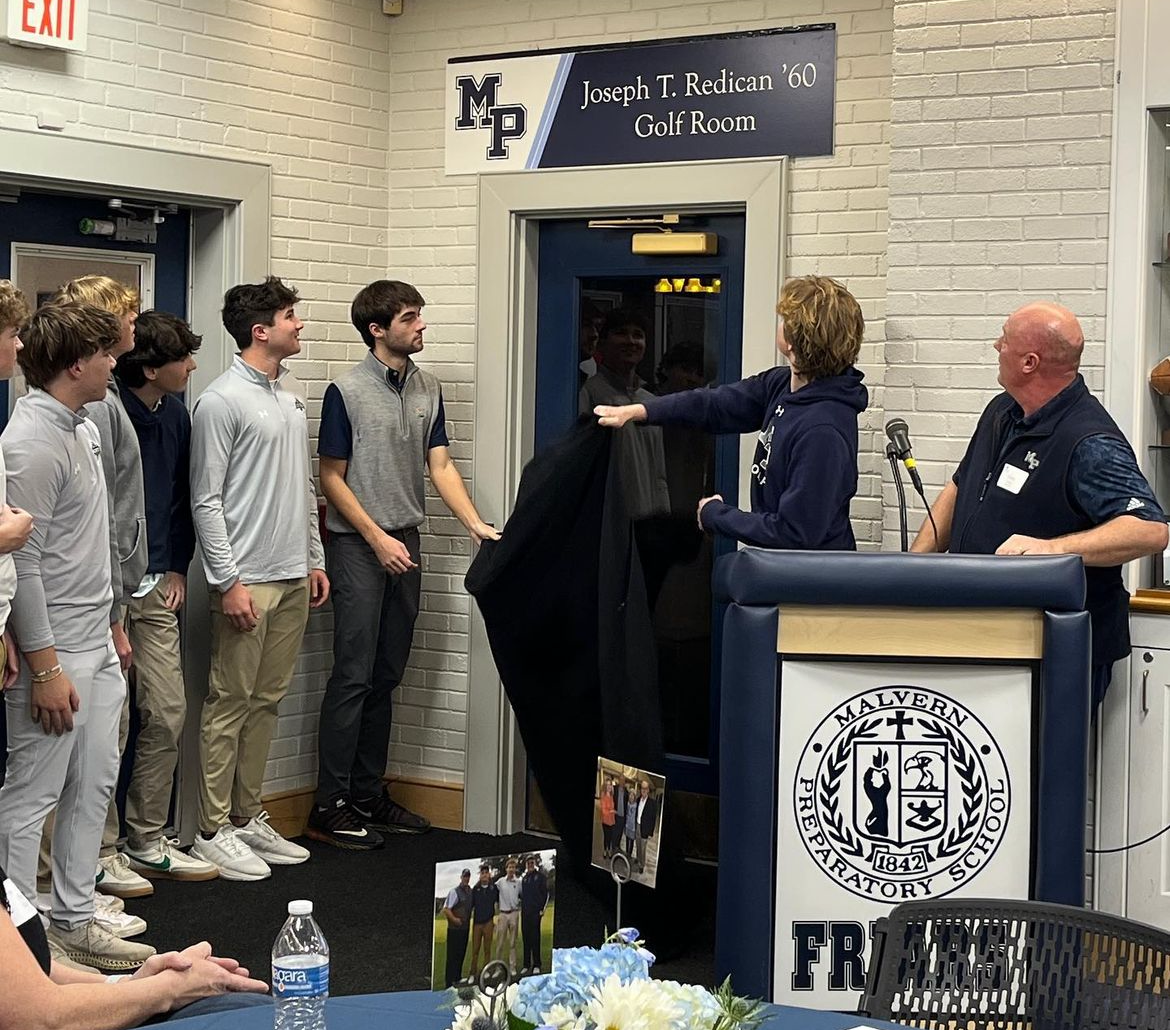Some Malvern student athletes use supplements to get an edge or an energy kick before working out.
Tommy Pero ’17, Sean Ward ’17
“It makes me feel crazy,” junior swimmer Chris Hincks said. “It gives me an intensity before my workout.”
Like many other students at Malvern, Hincks uses pre-workout before he hits the gym and sometimes before practice. Pre-workout products are drinks or mixes containing some combination of caffeine, protein, creatine, and B Vitamins.
According to Athletic Director Mr. Kurt Ruch and Head Athletic Trainer Dr. Williams Mills, Malvern has no real policy against or for pre-workout drinks. Coaches are not allowed to sell any products to students, and Mills said he prefers that coaches don’t recommend that students take them.
 Hincks thinks pre-workout helps him perform better, especially when he uses it consistently. However, he said it does come with some drawbacks.
Hincks thinks pre-workout helps him perform better, especially when he uses it consistently. However, he said it does come with some drawbacks.
“I have anxiety,” he said. “[Pre-workout] causes my anxiety to go up when I take it.”
Hincks added that increased heart rate and shortness of breath are other common side effects he notices and said he’s not worried about any of the side effects.
“I notice it does help a lot more when you’re doing shorter reps and more intense workouts than something that’s more endurance based,” he said. “Endurance based, I can feel more heart rate and feel almost like you’re gonna die. I wouldn’t suggest taking it before— if you’re a distance runner or going to go play a soccer game for a long amount of time. Before you hit the weight room, I think it’s really good.”
Despite Hincks’ endorsement, some people have had serious side effects and have even died from using pre-workout, according to the New York Times.
Mr. Keith Wilford formerly taught at Malvern and competed in crossfit competitions. Before one of these events, he took pre-workout while his heart rate was already high.
“Whatever was the product that I took at this competition,” Wilford said, “it spiked my heart rate well over 200 [beats per minute].”
According to Heart.org, the average resting heart rate is somewhere between 60 and 100 beats per minute, with fitter athletes having lower resting heart rates. Heart.org also estimates individual maximum heart rate as 220 minus the individual’s age. At the time of this competition, Wilford was 32 years old.
“My heart couldn’t take it,” he said. “I started to compete, and then I blacked out. I don’t really remember a whole lot after that.”
Wilford’s heart stopped beating. Luckily, doctors were able to save him.
“Today, I think I’m just very mindful of the fact that it can happen again,” he said. “I’m terrified by it. I don’t live in fear, but I’m terrified by it.”
Wilford wishes that lifting culture changes from focusing on individual comparison to how an individual can help their team.
“Comparison can sometimes be the most unhealthy way to find out how strong you are as an individual,” he said. “I’m just going to the gym to get a good workout and to feel good that I’m doing something for my teammate or doing something because it’s good for my spirit and my soul and who I am. I’m not doing it so I can go to my boy and go, ‘How much did you lift today?’”
“The comparison part of it is how we end up going to the place that may be a little bit unhealthy,” Wilford said.
Seven years later, Wilford still works out, but predominately does a lot of meditation. He started and runs The Wilford Movement and now works as a motivational speaker. He shares his story and aims to help teams develop.
Malvern Strength Coach Mr. Erik Miller also does not recommend that students take pre-workout.
“I don’t think students need it,” Miller said. “They are so full of growth hormone and testosterone… and they can make so many gains without it, that it is unnecessary”
Miller said there are more negatives than positives when it comes to taking pre-workout.
“Guys come in after school around 3:00 and take a huge amount of caffeine which could interrupt their sleep schedule and not allow them to recover for school the next day,” he said. “I know guys who have taken it for a while, and it started to make them sick but they couldn’t exercise without it for a long period of time. If you want to consistently train, there’s that possibility that it might knock you out for a while.”
Miller said pre-workout products are not regulated by the Food and Drug Administration, so it can be difficult to know what’s in the bottle. If students are tired, he said drinking some coffee would be better. He said it can improve performance, but at a cost.
Mills also does not recommend that students use pre-workout.
“The first thing you have to understand is, it’s a supplement. In other words, it’s adding to something that we’re missing,” Mills said. “You don’t know if you really need them so they may not work, or they could be bad for you.”
Mills recommends talking to a doctor or someone with a medical certification before taking anything. He also recommends heavily researching products by looking into reputable sources. Mills said a lot of research online was conducting by the pre-workout companies themselves and that independent studies are more trustworthy.
“Everybody wants that extra leg up or shortcut to get to that next level or do that next lift,” he said. “There is no shortcut, it’s all about hard work and getting the right nutrition.”
 Mills said supplements with caffeine and B Vitamins give users a wrong impression, while also putting stress on the body.
Mills said supplements with caffeine and B Vitamins give users a wrong impression, while also putting stress on the body.
“You’re not as focused as you think you are. You think you’re more alert, but actually you’re not,” he said. “Coffee is good for you, just a little bit for maybe that little bit of alertness. You don’t want to overdo it where you’re really buzzing.”
Mills said that deciding whether or not to take supplements comes down to research. He recommends the National Strength and Conditioning Association, for strength and conditioning, and Tufts University, for nutrition, as two good sources.
Mills recommends the products in the Gatorade vending machine in O’Neill. He said there are different products in the machine for before, during, and after workouts that work well. All of the products are approved by Malvern’s nutritionist, who was hired this year. Malvern is also planning on expanding its nutrition education in the future.
Still some students continue to take pre-workout. Senior soccer player Mike Sheridan uses pre-workout and has not noticed any drawbacks,
“I usually use them on a day when it’s a long school day and I’m tired,” he said. “It’s almost like a cup of coffee, but it’s easier. You can’t really carry around a coffee maker in your car. It’s easier to take on the way to the gym and give you some energy.”
Sheridan said he feels energized and more focused when he takes pre-workout. He doesn’t use it too often, but only when he feels he needs it. He looks for products that don’t have dimethylamylamine (or DMAA) in them and that contain fewer than 200 milligrams of caffeine.
Some experts have compared DMAA’s effect on the body to amphetamines and its use in a pre-workout drink was linked to the death of one user, according to the New York Times. For caffeine comparison, an eight ounce cup of coffee can have anywhere from 95 to 200 milligrams, according to The Mayo Clinic.
Sheridan said pre-workout is used widely at Malvern.
“I don’t go to the Malvern gym, but every time I go there, you’ll just see [pre-workout brand] C4 cans everywhere,” Sheridan said. “It’s really prevalently used across the board.”
Senior lacrosse player Tom Maguire used to use pre-workout but eventually decided to stop.
“After a while of using it, I kind of got used to the amount of it,” he said. “It wasn’t working as much as it used to. I figured probably using it to get better, to get stronger and everything for sports, I’m not going to be using it every day for sports. So, I figured I’d get off of it then so I got used to working out without it.”
Maguire said it’s hard to tell what you’re drinking and that research can determine which products are safe and effective.
“You have to be smart about what you’re buying and you have to really do some research beforehand and look up what you’re buying. Some of them actually might be bad for you and some of them might just be scams,” Maguire said. “It can be dangerous if you don’t know what you’re buying, but I definitely think there are brands out there that you can buy that are safe to use.”













